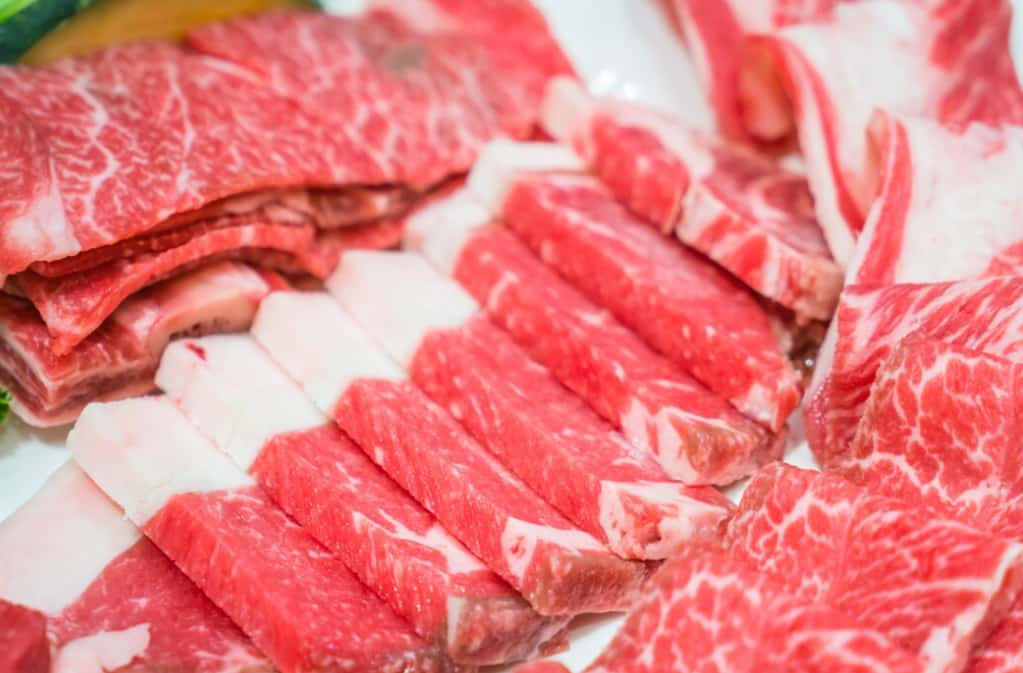Health and Beauty Benefits of Japanese Wagyu
Japanese Wagyu is often celebrated for its superior taste and marbling, but it also holds an array of health benefits. The prime components within Japanese Wagyu are protein, iron, and fats. Protein, crucial to bodily functions and muscle development, is especially important for children’s growth.
Importantly, Japanese Wagyu offers a range of essential amino acids — the building blocks of proteins that our bodies can’t produce autonomously. These are readily absorbed in comparison to plant proteins, and regular consumption aids in boosting immunity. Consequently, those who consume Wagyu can witness faster healing periods during illness or after injury.
Comparing Japanese Wagyu Fat to Olive Oil
- Among the fat constituents, oleic acid comes out as the champion, making up about half of the total fatty acid content;
- Known for being present in healthy fats like olive oil and certain cuts of beef, this monounsaturated fatty acid doesn’t contribute to LDL (bad) cholesterol and helps curb peroxide generation within the body;
- Interestingly, oleic acid boasts a higher resistance to oxidation, providing a protective shield against diseases such as heart ailments, diabetes, and various cancers;
- Moreover, it plays a vital role in smoothing bowel movements and preserving skin health.
Omega Balance: The Role of Omega-3 and Omega-6
Japanese Wagyu presents an optimal balance of Omega-3 to Omega-6. These polyunsaturated fatty acids, essential for numerous bodily functions, must be sourced externally. Omega-3 is intrinsic to the health of cell membranes and brain function, and deficiency can lead to dry, irritated skin.
In sufficient quantities, these fatty acids can lower cholesterol, mitigate inflammatory responses, and even combat cancer. However, concerns surrounding nutrient imbalance are largely unfounded, as the ratio present in Wagyu is more beneficial than harmful.
Nutrition Catered to Women’s Health Needs

In addition to these benefits, Japanese Wagyu is also rich in iron, especially heme iron. This type of iron is significant in women’s health, being efficiently absorbed by the body and preventing conditions like anemia. Moreover, beef’s heme iron content significantly outnumbers that of plant-based sources like soybeans.
Japanese Wagyu also houses serotonin, a neurotransmitter that aids mental wellbeing, and carnosine, an amino acid that accelerates wound healing, intensifies the sense of taste, and aids in fat metabolism. Other essential nutrients found in Japanese Wagyu include zinc and a variety of B vitamins.
Environmental Impact of Japanese Wagyu Production
It’s also important to understand the potential environmental implications of Japanese Wagyu production. As Wagyu cattle are typically raised in smaller quantities and under stringent quality control measures, this can lead to more sustainable farming practices.
However, like all farming practices, there are carbon footprint implications to consider. Consumers should strive to understand the impact of their food choices and seek to balance their diets with a variety of food sources.
Conclusion
With its rich protein content, balanced omega fatty acids, and substantial iron presence, Wagyu beef presents several health benefits when consumed moderately. But, like any food, it’s essential to ensure it fits within a balanced diet. This comprehensive guide aims to shed light on the nutritional aspects of Wagyu and assist readers in making informed, balanced, and sustainable dietary decisions. Remember, a healthy diet is not just about what you eat, but how and why you eat it.


